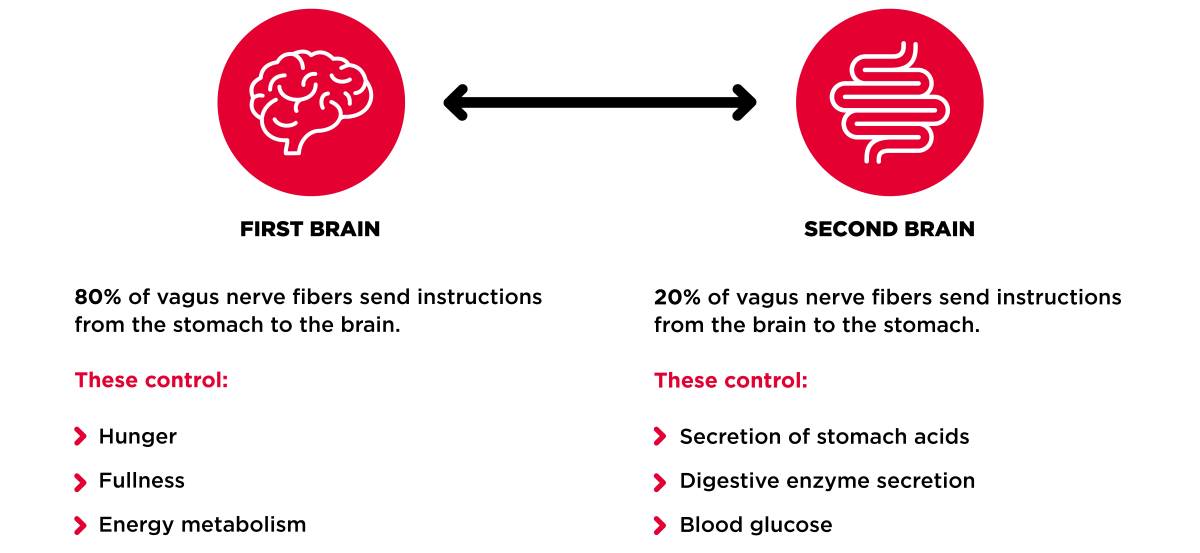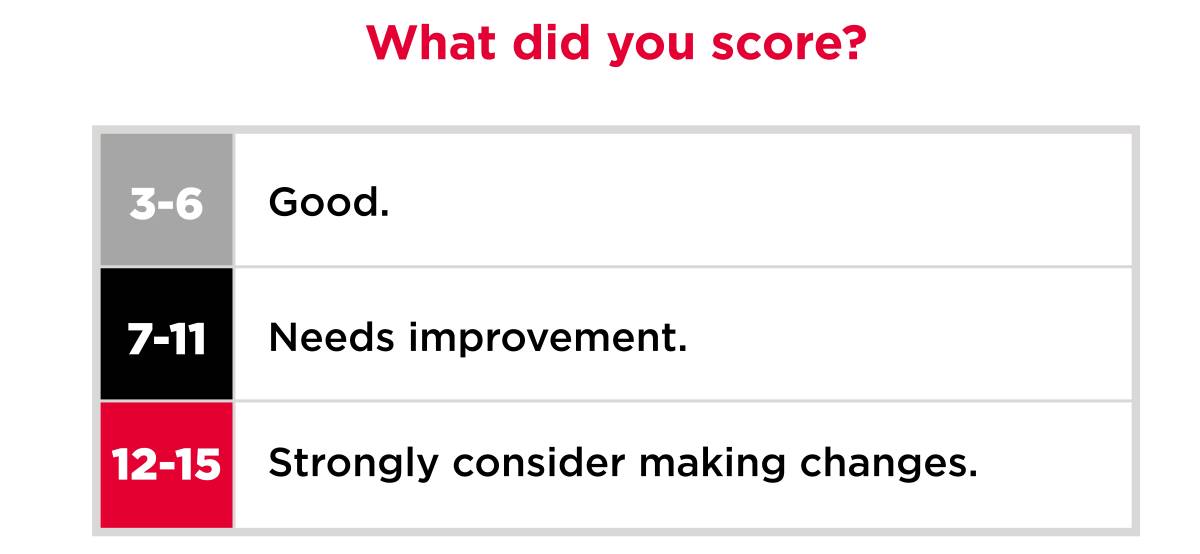Improve Your Gut Health To Improve Mental Health
Want to learn the secrets of a new scientific field that can help you overcome sugar cravings and lose weight more efficiently?
You will find the answer in your gut.
After your meal has passed your lips, you probably don’t think about it much. There is plenty of evidence that shows that your digestive system, and the microbiome it contains, are key players in everything from your body composition to your hunger and mental health.
Making your microbiome a star could be the secret to maximizing your physical and mental health.
What is gut Health?
Do you think that the gut is just bacteria? Not quite.
Gut health is the optimal function of the digestive system. You’ll start to feel the effects before you even eat.
When we pass a bakery, the aroma of a freshly-baked loaf or a fluffy croissant is irresistible. We can’t help but drool. The body produces saliva as soon as we think of or anticipate eating. Saliva contains enzymes which help to break down food and aid digestion.
There’s more to it.
It’s easy to think that the digestive tract is only there to digest and extract energy from food. It’s possible you didn’t know that the digestive system is one of your immune system’s main lines of defense.
The body is very clever at keeping dangerous germs away. The mucus that lines your gastrointestinal tract contains between 70 and 80% of the immune cells in the body [1]. This mucus layer traps foreign and pathogenic substances and eliminates them.
If you thought that your digestive system took up a lot of space inside, you would be mistaken.

Cath’s digestion was shocking, as she didn’t realise that she was lactose-intolerant. Cath’s digestion was shocking after working with U.P. Cath’s body is now the best it has ever been and her gut health issues have improved after working with U.P.
The gut-brain system
Your stomach and your brain are actually one and the exact same thing.
Gut-brain axis is a path that connects your gut to the brain.
This gut-brain axis, which is linked to the vagus, shares information on everything from hunger and fullness to blood glucose levels, stress levels, moods, and sleep.
Why your gut runs the show
Have you ever wondered why chocolate isn’t available in small portions? Remember the last time that you indulged in your sweet tooth. You probably craved more.
What’s the story? Answers are in your gut…
Now we know that the GI system is home to a ‘neuropod cell’ network.
These neuropod cells stimulate us to eat by sending rapid signals to the brain that inform it whether food contains things like salt or sugar (that our body considers essential for survival).
Your gut, whether you believe it or not can detect if the soda that you just consumed was full-sugar version or a low-calorie version by detecting energy [3].
This makes perfect evolutionary sense. We are evolved to survive periods of food scarcity. In today’s modern food world, where a single click can give us thousands of calories in just minutes, we could be heading towards obesity.
What is the microbiome? Why is it important to you?
You have approximately 38 trillion microbial cell in your gut. These bacteria, which are a symbiotic entity within us, have 150 times as many genes as the human genome.
What does this have to do with mental health? Everything!
Gut bacteria constantly evolve based on how you feel, what you eat and drink and how you move.
It is not unusual for high levels of stress, to cause changes in digestion. This can include bloating and gas. You may also have sensitivities towards certain foods. This is an example of how your gut bacteria and digestive system adapt to the environment.
Gut bacteria may even alter the location of chemical markers in the human genome. This could help fight cancer and infections. While there are many things we can do in order to maintain a healthy microbiome, the composition of your gut bacteria is highly genetic and affects how it responds to different stimuli.
What is the formation of microbiome?
Our mothers are responsible for a significant portion of our microbiome. Our immune systems begin to develop and interact with the gut flora as soon as we are born [5],[6].
Doctors and researchers focus on this part of development as early as in the delivery room.
C-section babies miss an important stage, which may increase their risk of obesity and asthma later in life [7],[8]. Researchers think that infants acquire their microbiota from the maternal vaginal liquid.
Researchers have made a breakthrough by exploring the effects of applying vaginal liquid to newborns. Early results indicate that the microbes lost by babies during surgical delivery are restored. While this is still an experimental practice, it’s an exciting development in the prevention of disease [9].
How does our microbiome affect our mental health and mood? This is where things get really interesting.
What is the impact of gut health on your mood?
Evidence indicates that our gut microbiota can directly influence an area of the brain known as the HPA (hypothalamic-pituitary-adrenal) axis. While this may seem like hard science, the change can have a major impact on your body’s metabolism, hormonal health and stress response. This system is so sensitive that even small interruptions can have a huge impact on your mood, thinking, and behavior.
Researchers are working hard to reverse the tide of obesity.
Early data suggests that faecal (yes, poo) transplants could be used to treat lifestyle diseases. You probably won’t rush to your doctor and ask for a large dose of another person’s dark matter. The results of both animal models and human ones have shown promising early signs.
Transferring microbial samples between obese and healthy subjects is the process. Patients who have received this treatment show that their bodies can process carbohydrates better, which leads to weight loss. Although it’s early days, it may not be long until a stool-transplantation becomes a common tool for the fight against obesity.
It has been proven that improving digestive health can also aid in weight loss by enhancing nutrient absorption and appetite control [15],[16]. If you are not ready to eat someone else’s waste, read on to find out some quick and easy ways to reap the rewards.
Does leaky gut affect your mental health in any way?
You may think that this is all there really is to the relationship between gut and mood.
Consider again…
The epithelium or intestinal barrier covers a larger surface than an IMAX screen, and can account for as much as 40% of the energy expenditure in your body [17]. This huge sensory organ plays a crucial role in maintaining our mental health.
You may be familiar with a condition called ‘leaky-gut syndrome’.
This doesn’t necessarily mean that you should call an out-of-hours plumbing service…
This is a condition in which the GI tract cells become permeable and allow undesirable compounds into the body. This can cause the body’s protective inflammation mechanism to go into overdrive. It will reduce the body’s ability to function optimally, and increase the risk of Alzheimer’s disease or other forms of cancer. This negative chain of events is triggered by stress in particular [20],[21].
While the name may make you smile, the effects of leaky gut are not something to laugh at.
The intestinal permeability, or leaky gut, is linked to a number of disorders including IBS, Alzheimer’s disease, autism spectrum disorder, Alzheimer’s and low-level inflammation associated with metabolic syndrome, overweight, and type 1 diabetes.
There’s some good news.
All these problems can be solved by a very special food.
Feed Your Good Bacteria
It’s not about the latest organic, gluten-free wheatgrass health shot or the latest “gut-friendly” wheatgrass.
You can find it in the vegetable drawer of your refrigerator.
In the final stages of digestion, the large intestine is where plant-based food is broken down. This process produces short-chained fatty acids (SCFAs), which are essential for maintaining our mental and physical well-being.
They play a vital role in maintaining the integrity of intestinal barriers, producing the important immune-boosting mucus that protects against inflammation.
SCFAs are also essential for controlling levels of neurotransmitters, such as serotonin and dopamine, chemicals that regulate feelings of motivation, happiness, and reward [25]. Reduce stress by eating more vegetables!
You might be able to conclude that your digestive system is in great shape based on what you have read above.
If you have stepped out of your rock in the last few weeks, it’s possible that something has upset your bacteria.
Does your lifestyle affect your gut health?
We are constantly exposed to substances and situations that can disturb the delicate eco-system within us.
Even beauty products, antibiotics, high stress, processed food, and chemical compounds in the environment, our food, or even our foods can cause minute changes to disrupt this balance. Dysbiosis is a condition that is more common than most people realize.
From minor problems like dandruff, psoriasis or dandruff to PCOS and alopecia, your gut bacteria could be out of balance [26],[27].
Its effects are not just physical. Dysbiosis is also responsible for many mood and behaviour disorders such as anxiety, depression and autism. Chronic fatigue, bipolar, and more can be traced to dysbiosis.
What is the state of your digestive system?
How can you tell that your gut is in top condition?
You’ve probably already guessed that your digestive system can be quite complex. It’s therefore very hard to diagnose problems without lab testing. If you feel that something is wrong, seek medical advice.
We also have some tools that you can use to evaluate your gut health right away.
The Bristol stool chart shows the composition of various types of stools based on their colour and consistency.
If you are usually in the middle, then you have some of the best poop. If you don’t experience a lot of what’s considered “normal”, you may need to change your lifestyle.
We are also not very good at determining if our gut health has reached its optimal level. This gut health quiz is a great way to get a quick overview.
Do you experience digestive discomfort such as abdominal cramping or bloating?
- Never Give Up
- You can also find out more about
- Many
- Most
- You can also
Is this a comfort or a pain after you have had bowel movements?
- Never Give Up
- You can also find out more about
- Many
- Most
- You can also
Do you experience digestive discomfort or pain often? Does it affect your sleep, concentration or work?
- Never Give Up
- You can also find out more about
- Many
- Most
- You can also
Eight tips for building a bulletproof gut
We hope we have convinced you that your gut deserves some TLC. If you aren’t sure how to begin, here are some simple tips that you can apply today.
1. Eat slowly to improve gut health
The digestive process begins with chewing, which helps to reduce the workload for the rest of the chain. Each mouthful should be chewed for 30 seconds.
2. Stress management can improve gut health
Stress management can be incorporated into your daily routine.
It is useful to relax into a parasympathetic state before eating. Listen to relaxing music and do breathing exercises. Avoid eating at your desk.
3. Improve your gut health by tracking your food intake
Keep a food journal and record symptoms such as bloating or gas, heartburn, or changes in the frequency of bowel movement. You can then identify trigger foods and either eliminate them for a period of time, or gradually introduce them when your symptoms improve. Under medical supervision, only perform an “elimination” diet.
4. Improve your gut health by eating as many vegetables as you can.
Vegetables are rich in nutrients that help your microbiome thrive and produce neurotransmitters. A simple rule is to make sure that half of your plate is vegetables. Eat a rainbow!
5. Improve your gut health by prioritising high-quality sleep
It is important to expose yourself to daylight during the day and put away electronic devices after dark. This will help you get a better night’s sleep. It is important to expose yourself to daylight during the day, and put away electronic devices at night. This will help you get a better sleep and maintain your body.
6. Improve your gut health by feeding your stomach
Prebiotics and Probiotics are foods that can help your microbiome thrive. Prebiotics feed healthy bacteria and provide probiotics with the bacterial seeds that are missing. Pickled foods like sauerkraut, pickled gherkins and kimchi can also be tasty.
7. Improve your gut health by hydrating
If you find it difficult to drink enough water, set reminders. Men should drink 3.7 litres of water per day, and women around 2.7 litres.
8. Supplements can be used to help support a healthy diet and lifestyle.
The use of supplements can improve gut health, by improving nutrient absorption and encouraging a good microbiome.
Five key supplements that will boost your gut health
Pre-Bio Fibre
Fibre is not only good for your stools but also helps to nourish the bacteria that live in your gut. Water with fibre is a good choice. This is the perfect tool if you are struggling to increase your fibre intake by eating more fruits and vegetables.
Gut Flora
Seed populations of healthy bacteria are provided. These bacteria thrive on fibres and nutrients from our diets and are beneficial for health.
Glutamine powder
Glutamine provides the main source of energy to the cells that line the gut. If you live a stressful life, have taken antibiotics in the past, or have had an unhealthy diet then glutamine powder will help to keep your gut healthy.
Digestive enzymes
As your digestive system heals, you need to have enough digestive enzymes.
Longvida curcumin
Curcumin is a powerful anti-inflammatory that helps reduce and prevent digestive problems caused by poor diets or food intolerances.
Visit our store to purchase these supplements.
Before taking any new supplements, please consult your doctor.
Take-home message
- It’s understandable if you don’t feel enthused by the idea of gut health. If you want to optimise your mental and physical well-being, you cannot afford to ignore this area.
- You can have digestive issues for a variety of reasons. If you suffer from these problems, it is best to consult your doctor.
- With these simple tips you can regain control and feel more energized, invigorated, and happy.







